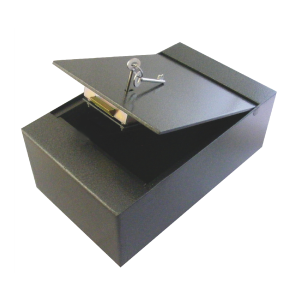What Should I Keep In A Safe?
Whether you have a safe at home or in your business, you will have that safe for a reason. It may be because your location or circumstances mean you are open to a particular security threat, or simply because you have items in your possession that need to be protected.
Why do we keep items in a safe?
There are a number of reasons why we decide to keep items in a safe:
- They have unique personal or sentimental value and cannot be replaced
- They are valuable to replace
- They would be time-consuming and troublesome to replace
- They would cause legal or administrative problems if they were lost
- Information could harm a business if in the wrong hands
- Unique information needs to remain a secret
- Hard copies of documents are an important back-up to digital copies or other hard copies
Keeping sums of cash in a safe perhaps doesn’t fit into any of these categories, but cash is traditionally the most popular item to keep in a safe because, once it’s gone it is gone. But in the digital world of online banking and cashless transactions, there are probably fewer instances of keeping large sums of cash in a safe. So what do we need to keep in a safe? This probably depends on the types of threat we are open to.
How do we decide what to keep in a safe?
For a home you need to consider what kind of area you live in, what levels of security you have and who comes around to your home. Do you regularly have service and trades people visiting your home? Are you away from home for extended periods quite often? Do you have teenage sons or daughters who regularly bring friends home, some of whom you may not know very well?
In a business, can you afford to invest in top security systems like CCTV or automated digital access control systems? Is your business in a remote area where not many people ordinarily pass by? Is the location of your business open to unauthorised encampment or trespass? Also, do you have a high turnover or high volumes of staff and internally you can’t be sure to 100% trust all your employees? You may also have a unique product and you need to protect what makes it unique from the prying eyes of competitors. And of course, a business has a duty to protect personal data about its employees.
Essentially, a home or business needs to carry out a mental risk assessment in all cases where they think an item may need to be protected by keeping it in a safe. So effectively you are asking yourself how much harm would be caused if this item went missing? Can it be replaced? How long would it take to replace? How much would it cost to replace? What personal or business interruption would be caused by this item going missing? Would I be breaching any legal duties by leaving this item open to possible theft or mis-use? In all cases it is also important to consider how regularly anyone would need access to this item? If it is quite regularly, it may not be practical to keep it in a safe and you may need to think about other more specific levels of security.
So now let’s look in detail about what you should keep in a safe.
Items you should keep in a safe
In your home, you should keep the following items in a safe:
- Large sums of cash, above what you would ordinarily keep in a purse or wallet for everyday expenses
- Jewellery that is valuable, or perhaps a family heirloom
- Personal items that have sentimental value and cannot be replaced, such as photos, items of clothing or accessories and jewellery
- Important documents such as passports, birth certificates or driving licences, which are hard to replace and it is very important that you know where they are for when you need them
- Legal documentation, such as a will or a lasting power of attorney. Again these will be hard copies of documents that you need to keep safe and be able to retrieve when needed.
In a business, you should keep the following items in a safe:
- Large sums of cash that cannot immediately be banked
- Petty cash for everyday expenses
- Business documents or contracts
- Items and information relating to the intellectual property of the business
- Important data back-ups on hard drives or USB sticks
- Product specifications, formulas and recipes – items which specify why and how products are unique, these are often kept safe from internal employees, as well as from external people to the business.
So, what should be kept in a safe is a specific choice of a person or business and is dictated by factors such as location, circumstances, risk, security controls and the individual nature of the item in question. However, in all cases, and providing you have a safe that is suitable, it is always sensible to keep an item in a safe if there is any reason to think you need to.